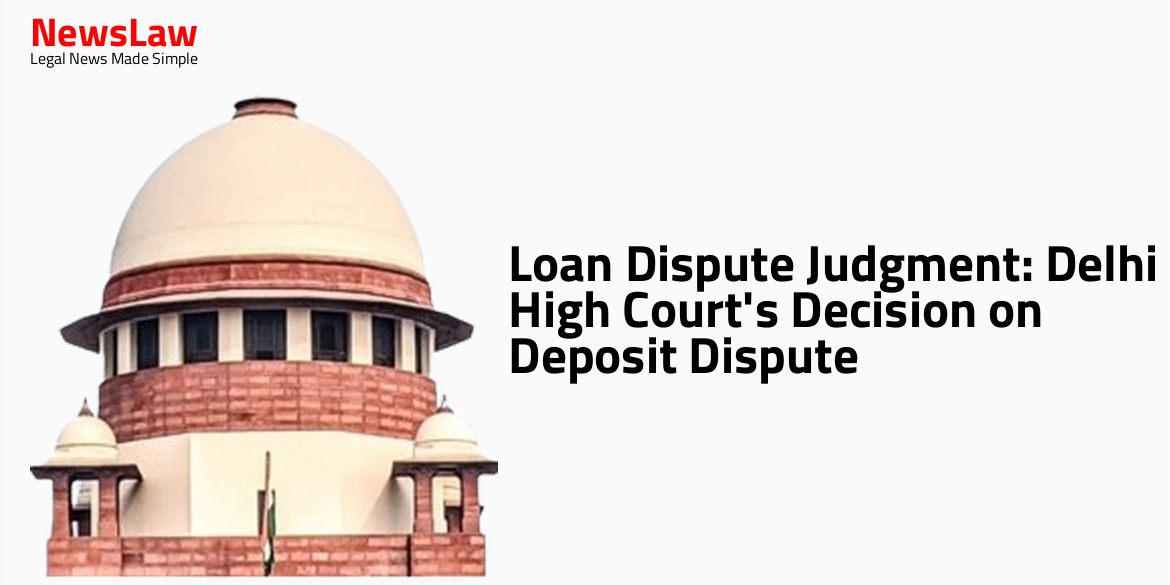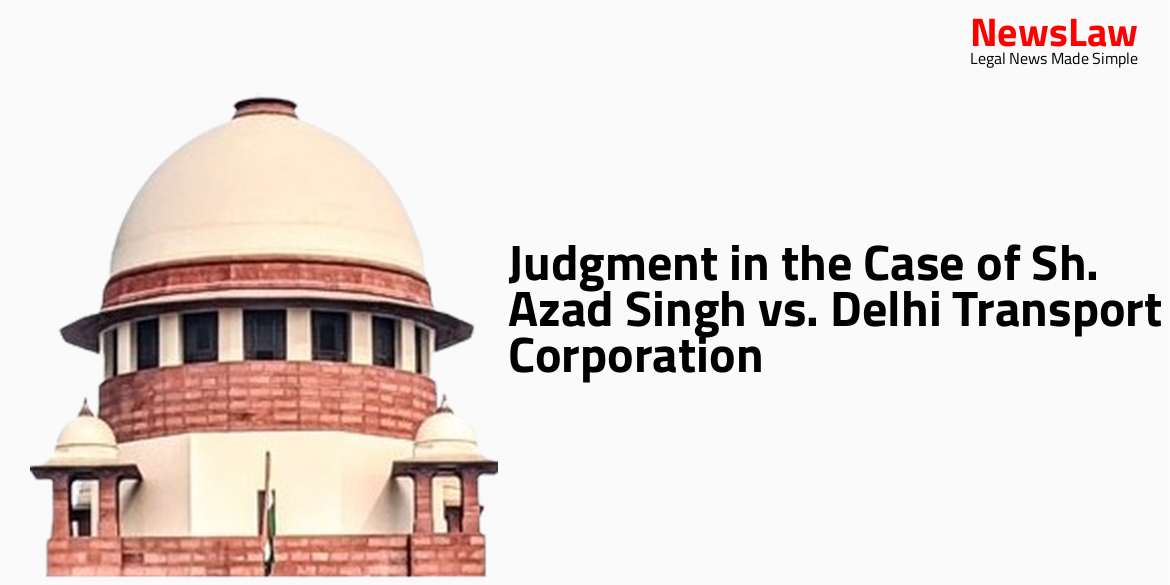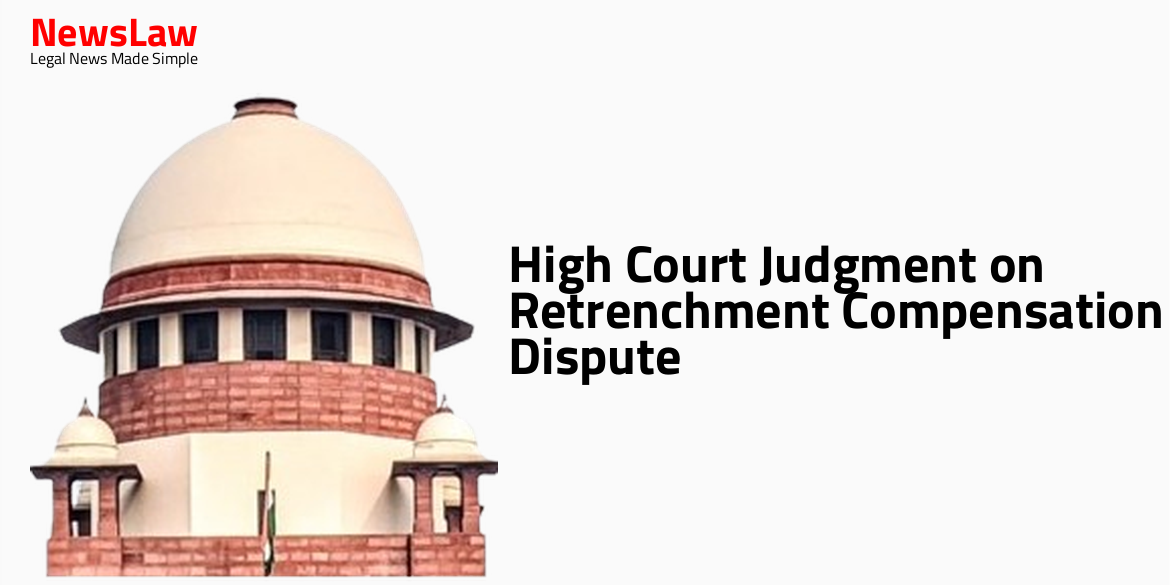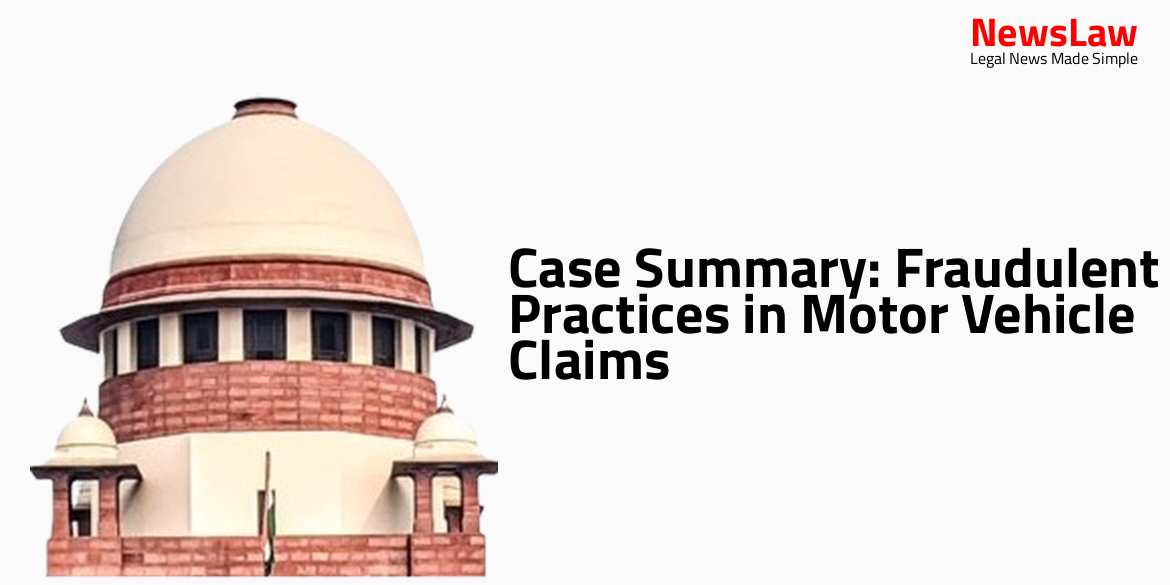In a recent ruling by the Delhi High Court, a loan dispute involving a deposit issue was resolved. The judgment sheds light on the court’s decision regarding the deposit dispute between the involved parties. Stay tuned to learn more about the legal implications of this case.
Facts
- The application seeking summary judgment was disposed of through a detailed judgment dated 27th March, 2023.
- The 2nd instalment of Rs. 1,00,00,000/- was to be paid within four weeks from the date of the judgment.
- The 3rd and final instalment of Rs. 1,00,00,000/- was to be paid within six weeks from the date of the judgment.
- In case of default in depositing the instalments by the Petitioner, the Plaintiff could approach the learned Single Judge for appropriate orders as per paragraph 36 of the impugned judgment.
- The Petition for Special Leave to Appeal was disposed of based on the above terms.
Issue
- The issue at hand pertains to a loan of Rs. 4,30,00,000/- Crores claimed to have been given by the plaintiff to the defendant.
- The Loan Agreement, Receipt, Promissory Note, and post-dated cheques show the defendant’s signature, but with handwritten insertions that the defendant denies writing.
- The Loan Agreement specifies the loan amount and an additional ‘lumpsum interest/profit of Rs. 20,00,000/-‘ to be repaid.
- The defendant admits to borrowing around Rs. 50-60 lakhs from the plaintiff between 2013-14 but alleges to have repaid a significant portion without providing specific details or substantiation.
Arguments
- The petitioner-defendant in CS(Comm.) No 2023 filed an application challenging the direction to deposit ₹4.5 Crore by the learned Single Judge of the High Court of Delhi.
- The direction was based on the purported Loan Agreement between the parties, with ₹4.3 Crore allocated towards the principal amount.
- The petitioner disputed this amount, leading to a conflict in the deposition.
- Despite supporting documents like the loan Agreement, Receipt, Promissory Note, and post-dated cheques, the defendant has not deposited any amount.
- The matter remains unresolved, as a settlement was not reached between the parties as of the latest update.
- The Plaintiff’s argument that the dispute should be considered a commercial dispute and not a ‘friendly loan’ was deemed valid on 27th March, 2023.
- Non-depositing would mean no defense for the Plaintiff, requiring them to prove their case and allowing the Defendant to cross-examine witnesses.
- The Defendant’s application for modification in April 2024 was rejected, leading to a review application filed on 8th May, 2024.
- The Defendant has filed two complaints against the Plaintiff, one for filing a forged document with the plaint and another under Section 340 of Cr.PC for appropriate action.
- The suit is argued to be barred under Section 3 of the Punjab Registration of Money Lenders Act, 1938 due to the Plaintiff lacking registration as a money lender as per the Act.
Analysis
- The High Court and the Hon’ble Court are in agreement, except for the reduction in the amount to be conditionally deposited by the petitioner.
- The judgment passed by the High Court on 27.03.2023 was elaborately discussed and modified by this Hon’ble Court.
- The provisions in XIII-A Rule 6 serve to expedite cases with no real prospect of success for the respondent.
- The present case is deemed a fit one for non-registration after reconsideration.
- A one-time commercial transaction does not transform the Plaintiff into a money lender.
- The filing of repeated miscellaneous applications post a final judgment is discouraged as it has no legal foundation.
- Non-compliance with depositing instalments may lead to a decree being passed.
- Compliance with procedural requirements benefits the Defendant to proceed to trial while securing the Plaintiff.
- The Defendant’s allegation of forged Loan Agreement on blank sheets is not upheld without proper support.
- Review under the guise of Miscellaneous Application is not maintainable.
- Probable defence needs to be raised meeting the standard of ‘preponderance of probability’.
- A bare denial of passing of consideration would not aid the defendant.
- Decision in Odeon Builders Pvt. Ltd. Vs. Kalamani Tex emphasized on raising a probable defence.
- Madras High Court in Syrma Technology Private Limited v. Powerwave Technologies Sweden AD emphasized on the need for stable and final judicial pronouncements.
- Miscellaneous Applications for modification of judgments are not envisaged in law.
- Filing of miscellaneous applications to avoid compliance with judicial decisions is not permissible.
- One cannot do indirectly what one cannot do directly as per settled legal principle.
- If a claim or defense may succeed but is improbable, Rule 6 (1) (b) may be applied.
- Possible conditions include requiring a party to deposit money, take specified steps, give security for costs, or provide surety for restitution.
- Additional conditions may be imposed at the Court’s discretion.
- Consequences for failure to comply may include judgment against the non-compliant party.
- Defendant was provided an opportunity to go to trial despite lack of merit
- Conditional passing of the suit due to non-compliance of the conditional present suit
- Consideration of lack of merit in allowing the case to proceed to trial
Decision
- The present appeal is dismissed as it is not maintainable.
- All pending applications are disposed of.
- The suit is decreed as per the prayer clause, directing the Defendant to pay a specified sum as principal and interest.
- The total amount to be paid includes both principal and interest, along with pendente lite and future interest at a specified rate.
- The Petition is disposed of with the Defendant being directed to deposit the amount in instalments, with the first instalment due within two weeks.
- The Defendant is allowed to approach the court or avail of its decision based on any orders passed by the Supreme Court regarding the review.
Case Title: AMANPREET KOHLI Vs. PANKAJ DAYAL (2024:DHC:4082)
Case Number: CS(COMM)-175/2020



